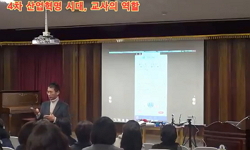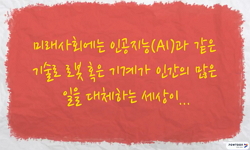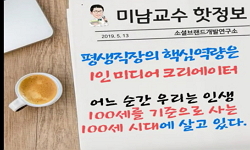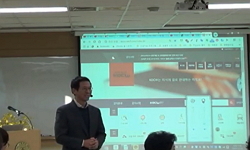This study aimed to explore the perception of early childhood education to be needed for preparation in the future society by teachers. Specifically, this study aimed to explore how young children's competencies needed in the era of future education, ...
http://chineseinput.net/에서 pinyin(병음)방식으로 중국어를 변환할 수 있습니다.
변환된 중국어를 복사하여 사용하시면 됩니다.
- 中文 을 입력하시려면 zhongwen을 입력하시고 space를누르시면됩니다.
- 北京 을 입력하시려면 beijing을 입력하시고 space를 누르시면 됩니다.
의미연결망 분석방법을 활용한 4차 산업혁명 시대 유아교육에 대한 유아교사의 인식 연구 = A study on the perception of early childhood teachers on early childhood education in the era of the 4th industrial revolution using the semantic network analysis method
한글로보기https://www.riss.kr/link?id=T16656014
- 저자
-
발행사항
전주 : 전북대학교 교육대학원, 2023
-
학위논문사항
학위논문(석사) -- 전북대학교 교육대학원 , 교육학(유아교육) , 2023. 2
-
발행연도
2023
-
작성언어
한국어
- 주제어
-
발행국(도시)
전북특별자치도
-
형태사항
vi, 67 p. ; 26 cm
-
일반주기명
지도교수: 임선아
-
UCI식별코드
I804:45011-000000056756
- 소장기관
-
0
상세조회 -
0
다운로드
부가정보
다국어 초록 (Multilingual Abstract)
This study aimed to explore the perception of early childhood education to be needed for preparation in the future society by teachers. Specifically, this study aimed to explore how young children's competencies needed in the era of future education, educational content needed for preschoolers, and teacher's role for their education.
The research questions to be addressed for the purpose of this study were follows. First, what are the core competencies of early children in the era of the 4th industrial revolution? Second, what are the educational contents to be taught in the early childhood education stage in the era of the 4th industrial revolution? Third, what is the role of early childhood teachers in preparation for the era of the 4th industrial revolution?
The open questionnaires were distributed and collected to explore the early childhood teachers' perception structure on 'early childhood education in the era of the 4th industrial revolution' with experience in early childhood education. Out of a total of 110 responses, 105 responses were used for analysis. The collected data went through a refinement process of word correction, control, and removal before coding. The “NetMiner” program was used for semantic network analysis, and 22, 17, and 19 keywords with a frequency of 3 or more were extracted. Based on the extracted keywords, degree centrality, closeness centrality, betweenness centrality, and eigenvector centrality were examined.
The research results were as follows. First, early childhood teachers recognized 'creativity', 'self-initiative', 'problem-solving ability', 'playfulness', 'adaptability', and 'personality' as the core competencies of young children required in the era of the 4th industrial revolution'. Second, early childhood teachers perceived 'creativity development', 'self-directed learning', 'play-centered education', and 'living together' should be taught at the early childhood education stage in the era of the 4th industrial revolution. Third, early childhood teachers perceived ‘inducers of divergent/creative thinking’, ‘play participants/supporters’, ‘coaching’, and ‘emotional supporters’ as ‘the role of early childhood teachers in preparation for the era of the 4th industrial revolution’.
This study has the research significance of exploring the perception of early childhood teachers for early childhood education in preparation in the 4th industrial revolution era and providing basic ideas to guide 'educational direction in future early childhood education' reflecting the opinions. Accordingly, this study provide the basic data to explore the development of teacher education programs empirically in preparation for the 4th industrial revolution or practical implication to find specific practical methods to perform the teachers’ roles.
국문 초록 (Abstract)
본 연구는 미래 사회의 변화에 대비하여 유아교육 현장의 교사들의 교육에 대한 인식을 탐색하고자 하였다. 구체적으로 미래교육 시대에 필요한 유아의 역량과 이를 위한 교육내용, 그리고 ...
본 연구는 미래 사회의 변화에 대비하여 유아교육 현장의 교사들의 교육에 대한 인식을 탐색하고자 하였다. 구체적으로 미래교육 시대에 필요한 유아의 역량과 이를 위한 교육내용, 그리고 교사의 역할에 대하여 어떻게 인식하고 있는지를 탐색하고자 하였다.
본 연구의 목적을 위하여 다루고자 하는 연구 문제는 다음과 같다.
첫째, 교사가 인식하는 4차 산업혁명 시대에 필요한 유아의 핵심 역량은 무엇인가?
둘째, 교사가 인식하는 4차 산업혁명 시대에 유아교육 단계에서 가르칠 교육내용은 무엇인가?
셋째, 교사가 인식하는 4차 산업혁명 시대를 대비한 유아교사의 역할은 무엇인가?
본 연구는 ‘4차 산업혁명 시대 유아교육’에 대한 유아교사의 인식구조를 탐색하기 위해 유아교육 및 보육 관련 기관의 유아교사를 대상으로 개방형 설문지를 배포 및 수집하였다. 총 110건의 답변 중 응답이 미흡하거나 적절하지 않은 자료를 제외하고 105건의 설문을 자료로 활용하였다. 각 연구 문제에 따라 수집 자료는 코딩 전 단어 교정 과정, 통제 과정, 제거 과정의 정제 과정을 거쳤다. 의미연결망 분석을 위해 ‘NetMiner’프로그램을 활용하였으며, 빈도수 3회 이상인 키워드를 각각 22, 17, 19개를 추출하였다. 추출된 키워드를 바탕으로 연결중심성(degree centrality), 근접중심성(closeness centrality), 매개중심성(betweenness centrality), 아이겐벡터중심성(eigenvector centrality)을 살펴보았다.
연구결과는 다음과 같다.
첫째, 유아교사는 ‘4차 산업혁명 시대에 필요한 유아의 핵심 역량’을 ‘창의성’, ‘자기 주도력’, ‘문제해결능력’, ‘놀이성’, ‘적응력’, ‘인성’으로 인식하는 것으로 나타났다.
둘째, 유아교사는 ‘4차 산업혁명 시대에 유아교육 단계에서 가르칠 교육내용’에 대하여 ‘창의력 키우기’, ‘자기주도적 학습’, ‘놀이중심 교육’, ‘더불어 살아가기’를 중요하게 생각하는 것으로 나타났다.
셋째, 유아교사는 ‘4차 산업혁명 시대를 대비한 유아교사의 역할’에 대하여 ‘확산적/창의적 사고 유도자’, ‘놀이참여자/지원자’, ‘코칭’, ‘정서적 지원자’라고 생각하고 있었다.
본 연구는 유아교사 ‘4차 산업혁명 시대를 대비한 유아교육’ 대한 인식을 파악하며 유아교육 현장의 의견을 반영한 ‘미래 유아교육에서 교육 방향’을 안내하는 기초적인 자료를 제공할 수 있다는 점에서 연구적 의의를 갖는다. 이에 따라, 4차 산업혁명을 대비한 교사교육 프로그램 개발이나 해당 역할들을 수행하는 구체적인 실천 방법들을 찾아가는 실행 연구를 실증적으로 탐색할 수 있는 기초자료가 될 수 있을 것으로 생각된다.
목차 (Table of Contents)
- 1. 서론 1
- 1.1. 연구의 필요성 및 목적 1
- 1.2. 연구 문제 4
- 2. 이론적 배경 5
- 2.1. 4차 산업혁명의 개념과 특징 5
- 1. 서론 1
- 1.1. 연구의 필요성 및 목적 1
- 1.2. 연구 문제 4
- 2. 이론적 배경 5
- 2.1. 4차 산업혁명의 개념과 특징 5
- 2.2. 4차 산업혁명과 유아교육 16
- 3. 연구 방법 26
- 3.1. 연구 대상 및 자료수집 26
- 3.2. 연구 도구 27
- 3.3. 자료 처리 28
- 3.4. 자료 분석 34
- 4. 연구 결과 36
- 4.1. 4차 산업혁명 시대에 필요한 유아의 핵심 역량 36
- 4.2. 4차 산업혁명 시대를 대비하여 유아교육 단계에서 가르칠 필요가 있는 교육내용 39
- 4.3. 4차 산업혁명을 대비한 유아교사의 역할 43
- 5. 논의 및 결론 46
- 5.1. 논의 46
- 5.2. 결론 53
- 6.참고문헌 55
- 7.부록 63












